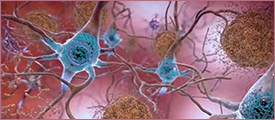Author: Lauren Robertson, BA, MPT
Contact hours: 4
Expiration date: January 11, 2024
Course price: $29
Course Summary
Florida DOEA Curriculum Approval Number SAADC 9685.
Certified Trainer: The author is certified as an ADRD trainer by the Florida Department of Elder Affairs and is available via e-mail at [email protected] or by phone Monday-Friday from 9 a.m. to 5 p.m. (Pacific Time) at 707 459 3475.
This training is for those of you who have direct contact with clients in specialized Alzheimer’s adult daycare centers. It is designed to increase your awareness and understanding of Alzheimer’s disease and related dementias.
Criteria for Successful Completion
Study the course material, achieve a score of 80% or higher on the post test (the post test can be repeated if a learner scores less than 80%), complete the course evaluation, and pay where required. No partial credit will be awarded.
Accreditation
To find specific accreditations or approvals, click here.
Course Objectives
When you finish this course you will be able to:
- List the 3 overall services provided by an adult day care facility.
- Describe 2 differences between Alzheimer’s dementia, vascular dementia, and frontotemporal dementia.
- List 3 ways in which normal cognitive changes that occur in older adults differs from cognitive changes seen in dementia.
- Relate 3 differences between dementia, delirium, and depression.
- Describe the purpose for a neurocognitive screening.
- Relate 3 ways in which dementia affects communication.
- Describe 5 challenging behaviors that might be associated with dementia.
- Define person-centered care.
- Describe 5 keys points about pain in an older adult with dementia.
- Relate the 2 most common classes of medications used in older adults with dementia.
- List 5 risk factors for malnutrition and dehydration in older adults with dementia.
- Describe 3 features of a meaningful activity.
- Describe the 3 main components of validation therapy.
- List the 2 key features of safety technologies.
- Relate 5 ways to reduce caregiver stress.

